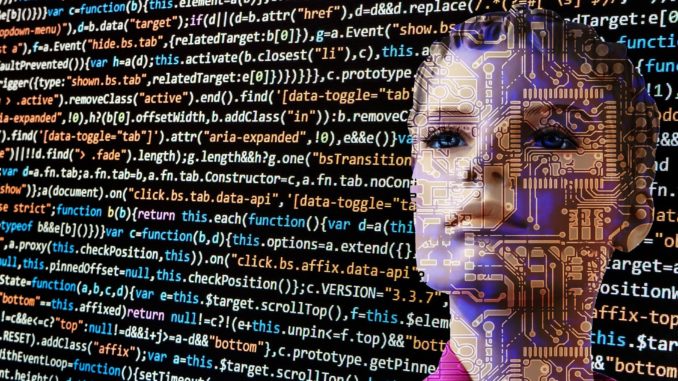
By Dr. Robert J. Romano, JD, LLM, of St. John’s University
The 2001 Super Bowl in Tampa, Florida was nicknamed the “Snooper Bowl” because fans entering Raymond James Stadium were subjected to face-recognition scanning technology that ran a person’s image through a database of known criminals and possible terrorists.[1] Fast forward twenty plus years, and similar, more advanced face-recognition technology is still being used by sports venues in the United States, this time by Madison Square Garden Entertainment Corporation, the owner of both Madison Square Garden and Radio City Music Hall. However, instead of using the technology for what would be considered legitimate reasons, to identify potential terrorist threats or criminal activity, MSG Entertainment Corporation is utilizing it to prohibit lawyers from entering its facilities if they work for a law firm or company that has initiated any form of litigation against any venue owned by MSG Corporation.[2]
This all began in the summer of 2022, after MSG Entertainment Corporation informed any ‘oppositional’ attorney that, “Neither you, nor any other attorney employed at your firm, may enter the Company’s venues until final resolution of the litigation.”[3] The stated reasoning behind MSG Entertainment Corporation barring opposing attorneys is its belief that it needs to protect itself against any unauthorized or improper evidence collection “outside of proper litigation discovery channels.”[4] In addition, MSG Entertainment Corporation believes, as with most companies, that it is their decision as to whom they want to do business with and that they can forgo a commercial interaction with someone as long as they are not discriminating against that person based on their race, ethnicity, sex, religion, or other protected class. Therefore, since being a member of a state bar is not a protected class, MSG Entertainment Corporation’s position is that it can refuse access to its venues for certain ‘adversarial’ individuals.
But not so fast MSG. First, New York Attorney General Letitia James sent an official letter to MSG Entertainment Corporation wherein it is her office’s belief that barring opposing attorneys from its properties, together with its use of facial recognition technology, may violate anti-discrimination laws and may dissuade lawyers from taking on cases such as sexual harassment or job discrimination claims against the company.[5] As stated in Attorney General James’ letter, “MSG Entertainment cannot fight their legal battles in their own arenas. Madison Square Garden and Radio City Music Hall are world-renowned venues and should treat all patrons who purchased tickets with fairness and respect.”[6] The Attorney General’s letter continues, stating that because substantial research suggests that facial recognition technology “may be plagued with biases and false positives against people of color and women,”[7] her offices wants to know how MSG, when using the technology, is ensuring compliance with applicable anti-discrimination laws.
Second, three New York State lawmakers have introduced legislation that would prohibit MSG Entertainment Corporation’s practice of banning attorneys with whom it is in current litigation with from its entertainment venues. State senators Brad Holyman-Sigal and Liz Krueger, together with assembly member Tony Simone, want to amend an existing state civil rights law, NY Civil Rights Section 40-b, by adding the term ‘sporting events’ to the list of qualifying public places of entertainment or amusement that cannot legally refuse entry if a person arrives with a valid ticket. The current law, which went into effect in April 1941, was originally passed to prohibit Broadway theaters and other playhouses from refusing critics the right to enter their establishments fearing a bad review. The law’s original language also defined places of public entertainment and amusement as ‘legitimate theatres, burlesque theatres, music halls, opera houses, concert halls, and circuses’, but did not include movie cinemas, sporting venues or racetracks.[8]
What is interesting, however, neither the Attorney General nor the state lawmakers, or even the banned lawyers involved, directly address the constitutionality of a public venue using facial recognition technology to screen and monitor legitimate ticketholders in a noncriminal context and whether such is a threat to an individual’s privacy. As we are all aware, the Fourth Amendment of the U.S. Constitution protects society from unreasonable searches and seizures and the U.S. Supreme Court in Katz vs. U.S. established that a person has a reasonable expectation of privacy, so isn’t scanning a person face as a prerequisite for attendance at the Rockettes or a Justin Bieber concert a violation?[9] Then again, maybe the bigger question is shouldn’t we as a member of society expect more?
[1] L. Elmore, Tampa police made it the Snooper Bowl, but high-tech spying’s a low-level sin, Street & Smith’s Sport Business Journal (Feb. 12-18, 2001), at 34.
[2] https://www.nytimes.com/2023/01/16/technology/madison-square-garden-ban-lawyers.html
[3] Id.
[4] Id.
[5] https://apnews.com/article/new-york-knicks-technology-state-government-city
[6] Id.
[7] Id.
[8] NY CIV RTS Section 40-b, See, Mandel v. Brooklyn Nat. League Baseball Club, 1942, 179 Misc. 27, 37 N.Y.S.2d 152 – holding that a baseball ground was not a “place of public entertainment and amusement” within meaning of this section.
[9] Katz v. United States, 389 U.S. 347, 361 (1967).
